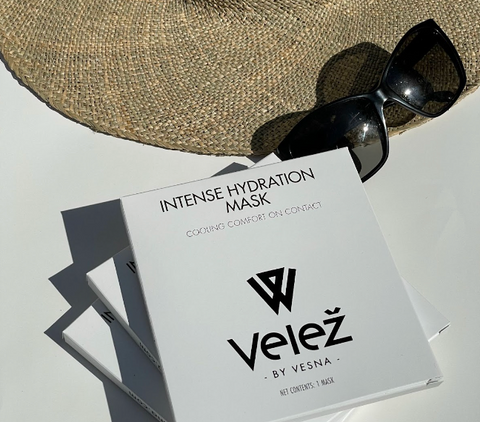healthyskin , skincare , sunprotection , Velež
The Do's and Don'ts For Healthy Skin


May is Skin Cancer Awareness Month in the US, a time to raise awareness about the most common type of cancer. Around 9,500 people in the US are diagnosed with skin cancer every day. Practicing sun safety is the most helpful way to reduce the risk of this disease. However, it is inevitable that our skin will be exposed to the sun. Recovery after skin treatments is extremely important for skin health and care.
Prevention is always the best solution. In preparation for this summer, here are some important do's and don'ts to help you take care of your skin to reduce the risk of skin cancer or other skin problems:
DO:
DON'T:
Melanoma Monday is observed on the first Monday of May during Skin Cancer Awareness Month. It is dedicated to raising awareness about melanoma, a serious type of skin cancer. Melanoma can develop anywhere on the skin, including areas that are not typically exposed to the sun. The American Academy of Dermatology (AAD) encourages everyone to check their skin for the ABCDEs of melanoma and to seek medical advice if they notice any changes.
It's important to remember that people of all skin tones can develop skin cancer, and it's essential to check your skin regularly, regardless of your skin tone. Advanced melanoma can be deadly.
If you have a history of skin cancer, it's essential to schedule regular check-ups with your dermatologist. A board-certified dermatologist can help detect any recurrence of skin cancer early and provide personalized recommendations for post-treatment care.
In conclusion, skin cancer prevention and early detection are crucial to reduce the risk of skin cancer and ensure successful treatment outcomes. Post-treatment recovery is also important to help your skin regenerate. One way to help with recovery post extensive sun exposure or treatment is to use a biotech cellulose face mask, such as the Velež Intense Hydration Mask.

It provides intense hydration, rapid cooling, and soothing effects to the skin. It is often used in aesthetic dermatology post-laser treatments to draw the heat out of the skin and visibly reduce redness, irritation, and swelling. Velež Intense Hydration mask is a must-have for anyone who loves the sun but cares about their skin health.
With scientifically-backed results, the Velež Intense Hydration mask comforts skin on contact and is recommended for sensitive skin since it does not produce harmful side effects. By following all of these tips, you can care for your skin and protect yourself from skin cancer.